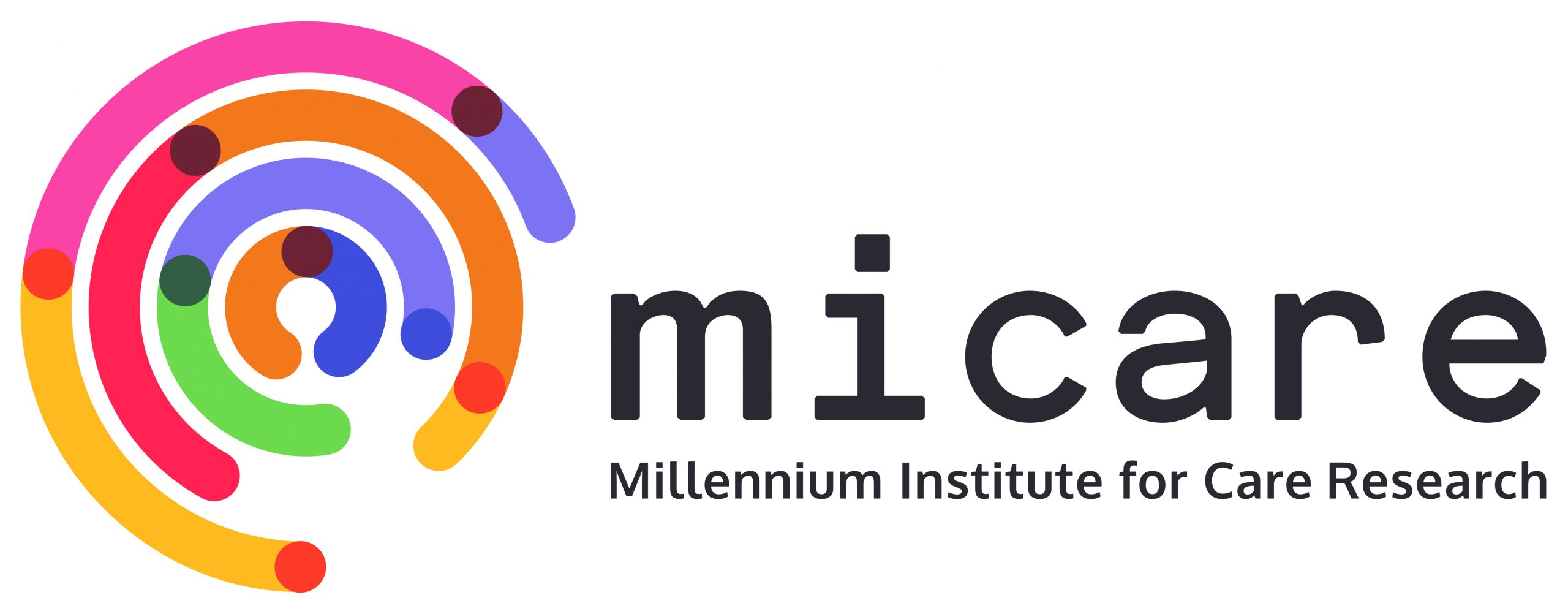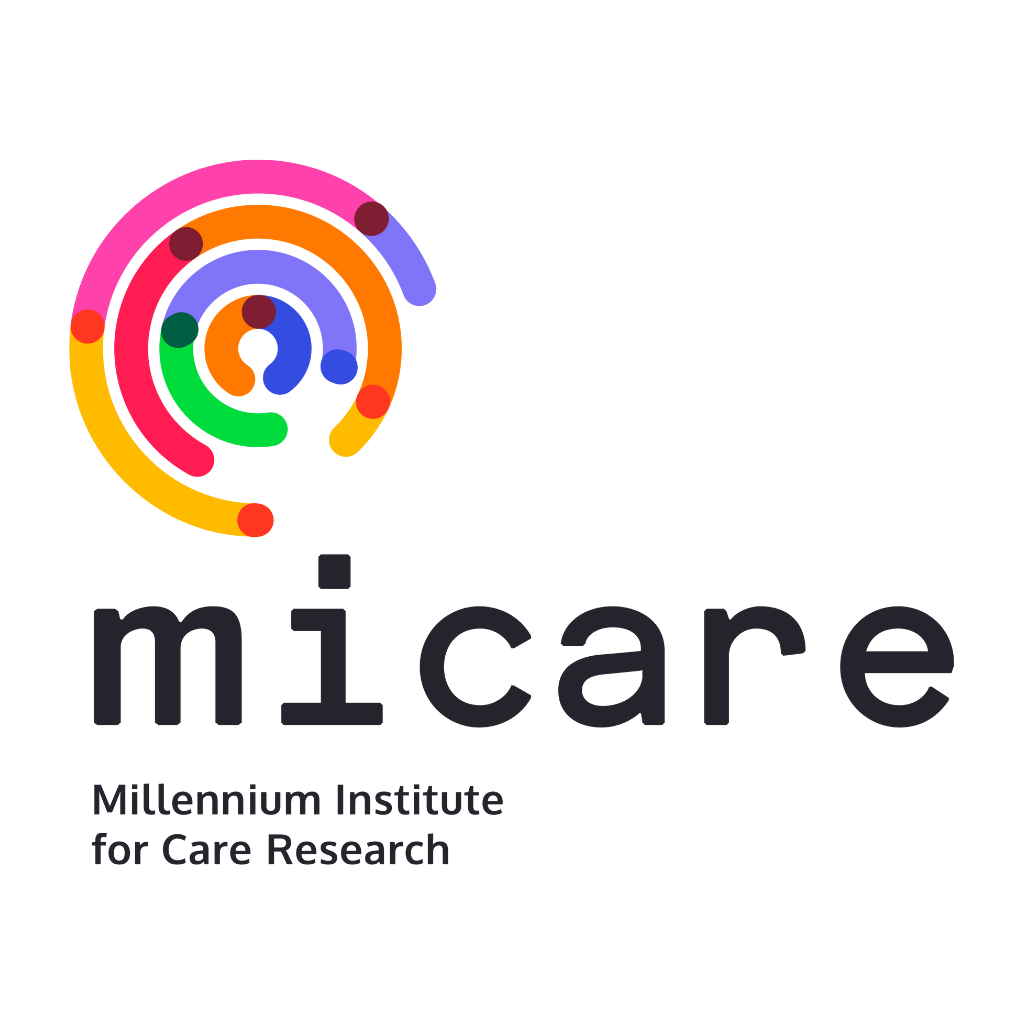MICARE Director Claudia Miranda was one of the signatories to this statement by the Transdisciplinary Network on Aging of Universidad de Chile regarding the dissemination and implementation of a technology that uses a blood sample to detect Alzheimer’s disease up to 10 years before it develops.
Read here the original statement published by Universidad de Chile.
In view of the dissemination and implementation of a technology that uses a blood sample to detect Alzheimer’s disease up to 10 years before it develops, representatives of the Transdisciplinary Network on Aging of the Universidad de Chile and researchers from other institutions express their concern about the actual usefulness of this test and other biomarkers that are still being researched.
The launch of a blood test that could predict Alzheimer’s dementia at least 10 years in advance has recently been mentioned in the national media.
We, the undersigned, believe that this news should be taken with caution and without losing sight of the available scientific evidence.
Neurodegenerative dementias are a series of diseases that cause a slow and progressive deterioration of brain functions that at some point will generate an impact such that people require the assistance of others to function in daily life. The most common cause of dementia is Alzheimer’s disease, which is characterized from the neuropathological point of view by the deposition in the brain of two molecules, beta-amyloid and Tau, and neuronal death. In a research context, these molecules have been measured in blood, cerebrospinal fluid, and through neuroimaging examinations as a biomarker for the presence of Alzheimer’s disease.
One of the main challenges of international research is identifying biomarkers to predict the risk of developing Alzheimer’s type dementia in people without clinical symptoms of dementia.
It is, however, essential to clarify several aspects:
At present, no biomarker has been shown to predict the likelihood of developing Alzheimer’s dementia. Thus, no clinical guideline or international recommendation proposes to study asymptomatic or non-demented individuals with biomarkers to predict their risk of developing dementia.
Biomarker studies are performed exclusively in the context of research protocols to establish their real clinical utility.
Behavior will not change after a positive test, which can also have a negative effect on mental health.
Although we do not have biomarkers to predict the risk of developing Alzheimer’s dementia, research has shown that the risk of developing dementia can be reduced. Dementias are a group of potentially preventable diseases, or at least to a certain extent, through healthy lifestyle habits. These recommendations are the same for everybody and do not depend on the presence or absence of a biomarker. On the contrary, interpreting the presence of such a biomarker as the possibility of experiencing a future event, such as dementia, could even have an iatrogenic effect on people’s mental health.
We believe that the population should be offered suitably validated diagnostic tests that provide clinically useful information. It is essential to further investigate whether biomarkers could predict the risk of developing Alzheimer’s type dementia before proposing them as a diagnostic test to the population at large.
Dementias, and in particular dementia due to Alzheimer’s disease, are among the most feared diseases in the population. To profit from that fear by proposing to predict Alzheimer’s disease in people over 40 years old is highly questionable.
The answer to the question about the risk of dementia is to educate about prevention and communicate that there are currently no tests that can eliminate this uncertainty.
We urge all national and scientific bodies to follow international guidelines and limit the use of biomarkers to research protocols or highly specific cases, where it could generate effective behavioural changes.
We believe it is crucial to bear in mind that one of the ethical principles of medicine is, first, to do no harm, so proposing onerous tests to predict the risk of dementia without adequate evidence not only makes people incur excessive expense but also damages their trust in medical science and clinical research.
Finally, we believe it is important for the scientific and medical community and the media to disseminate health news with sound scientific backing.
Petition signers:
Tomás León R.
Memory Clinic Psychiatrist and Neuropsychiatrist Hosp. del Salvador
Atlantic Fellow for Equity in Brain Health Global Brain Health Institute
Andrea Slachevsky
Neurologist, PhD.
Memory and Neuropsychiatry Clinic, Salvador Hospital, and University of Chile School of Medicine
Center for Geroscience, Mental Health and Metabolism (GERO)
Department of Neurology, Clínica Alemana, Santiago
Gabriel Martínez Fuentes
Geriatrician, PhD
Angela Nervi Nattero
Neurologist
Alejandra Pinto Henríquez
Clinical Psychologist
Memory Unit
Salvador Hospital
Patricia Alegría Figueroa
Neuropsychologist, Clínica Alemana
President of the Alzheimer Chile Corporation
Adriana López Ravest
Geriatrician
Jorge González Hernández
Neurologist
Teresita Ramos Franco
Neurologist
Claudia Miranda Castillo
Psychologist, PhD, Associate Professor, Andrés Bello University
Director, Millennium Institute for Caregiving Research (MICARE)
María Ignacia Balocchi
Neuropsychologist
Susana Rojas Caroca
Clinical Psychologist
Master in Clinical Psychology, PUC
María Isabel Behrens
Neurologist, PhD
Daniela González Astorga
Psychogeriatrician
Alejandra Flores
Psychogeriatrician
Psychogerontologist
Paola Cabezas A
Psychiatrist
Memory Unit, Salvador Hospital
Daniel Jiménez Fernández
Neurologist
East Department of Neurological Sciences, University of Chile
Tahina Chang
Psychogerontologist
Mario Ociel Moya
Anthropologist, PhD.
INTA, University of Chile.
Benjamín Suárez
Tenured Professor
Disciplinary Physiology and Biophysics Program, ICBM
School of Medicine
University of Chile
Natalia Castillo Núñez
Occupational Therapist, Master in Health Sciences Education.
Academic, Department of Occupational Therapy and Occupational Science, University of Chile.
Ignacio Gallardo Navarro
Academic Psychology FACSO U de Chile
Bárbara Angel Badillo
PhD. Assistant Professor
Public Nutrition Unit
INTA, University of Chile
Alejandra Fuentes-García
Assistant Professor
School of Public Health
School of Medicine
University of Chile
Marco Cornejo Ovalle
Surgeon-Dentist. Doctor of Public Health
Assistant Professor, School of Dentistry
University of Chile
Carolina Delgado Derio
Neurologist
Associate Professor
Department of Neuroscience
University of Chile Clinical Hospital
Nicole Rogers Castillo
Neurologist, PhD
Mijal Martínez Trajtmann
Psychologist, studying a Master’s Degree in Psychogerontology
Marcela Farías Vergara
Surgeon-Dentist
Assistant Professor, School of Dentistry
University of Chile
Andrea Pizarro
Surgeon-Dentist
Assistant Professor, School of Dentistry
University of Chile
Javiera Gajardo Arias
Neurologist
San Pablo Hospital, Coquimbo/ Catholic University of the North
Jaime Labrin Carrasco
Neurologist
Los Ángeles Hospital
Fernando Molt Cancino
Neurologist
Coquimbo Hospital/ U. Católica del Norte.
Felipe Alzola Bendicho
Neurologist
César Morales
Neurologist, Arica
Carolina Leal Werner
Neurologist
Jorge Matamala Saavedra
Neurologist, Chillán
Rodolfo Vergara Quinchagual
Neurologist
Arauco Health Service
Rafael Aránguiz
Neurologist
Inger Psychogeriatric Unit
Benjamín Chacana
President of Coprad (Professional Corporation for Alzheimer’s and other Dementias)
Rodrigo Salinas
Neurologist
Paola Morales Retamales
Neurobiologist, PhD.
Associate Professor, Dept. of Neurosciences, Molecular & Clinical Pharmacology Program, ICBM
School of Medicine, University of Chile
Claudia Duran-Aniotz
PhD
Director of Coprad (Professional Corporation for Alzheimer’s and other Dementias)
Co-Director of BrainLat. Adolfo Ibañez University
Paulina Arriagada
Neurologist
Romy Von Benhardi
MD, PhD in neurosciences
Claudio Martínez
Neurologist
René Meza Flores
Neurologist
Coordinator of the Memory Unit, Talca Regional Hospital
Professor of Neurology at Maule University
MINSAL Neurology Advisory Member
Patricia Flores
Neuropsychologist
Teresa Castillo
Neurologist
Dr. Hernan Henriquez Aravena Hospital, Temuco
Kimunche Community Support Center for People with Dementia
La Frontera University
David Sáez
Neurologist
Associate Professor
School of Medicine, University of Chile
Gustav Rohde
Neurologist
Cognitive Disorders Unit, Department of Neurology
Gustavo Fricke Hospital
Valparaíso University
María José Angel
Neurologist
INGER Psychogeriatric Unit
Rafael Aránguiz
Neurologist
Psychogeriatric Unit. INGER
María Angélica Silva
Neurologist
Gabriel Cea
Neurologist
Tenured Professor, School of Medicine
Ramiro Zepeda
Physician
Arturo Martínez
Neurologist, San Felipe
Rodrigo Guerrero Torrealba
Neurologist
Jorge Ibáñez Piña
Neurologist
Lorena Montecino Ramos
Neurologist
Rodolfo Vergara Quinchagual
Neurologist – Arauco Health Service
Silvia Oliva Castillo
Neurologist
Juan Almeida
Neurologist, Padre Hurtado Hospital
Wilhelm Uslar Nawrath
Neurologist
UC-CHRISTUS Health Network
Herminda Martín Hospital, Chillán
Mónica Nivelo Clavijo
Physician, Master in Public Health
Academic, Department of PHC and Family Health, School of Medicine, University of Chile.
Cristo Vive CESFAM. SSMN
Patricio Sandoval R.
Neurologist
Department of Neurology, School of Medicine, Catholic University of Chile





